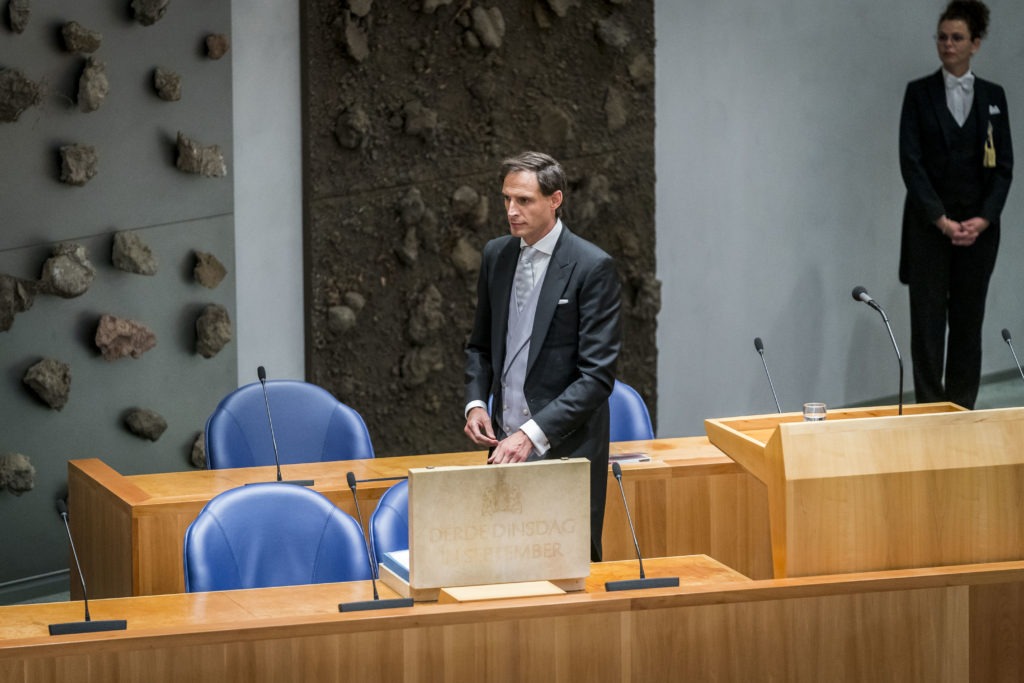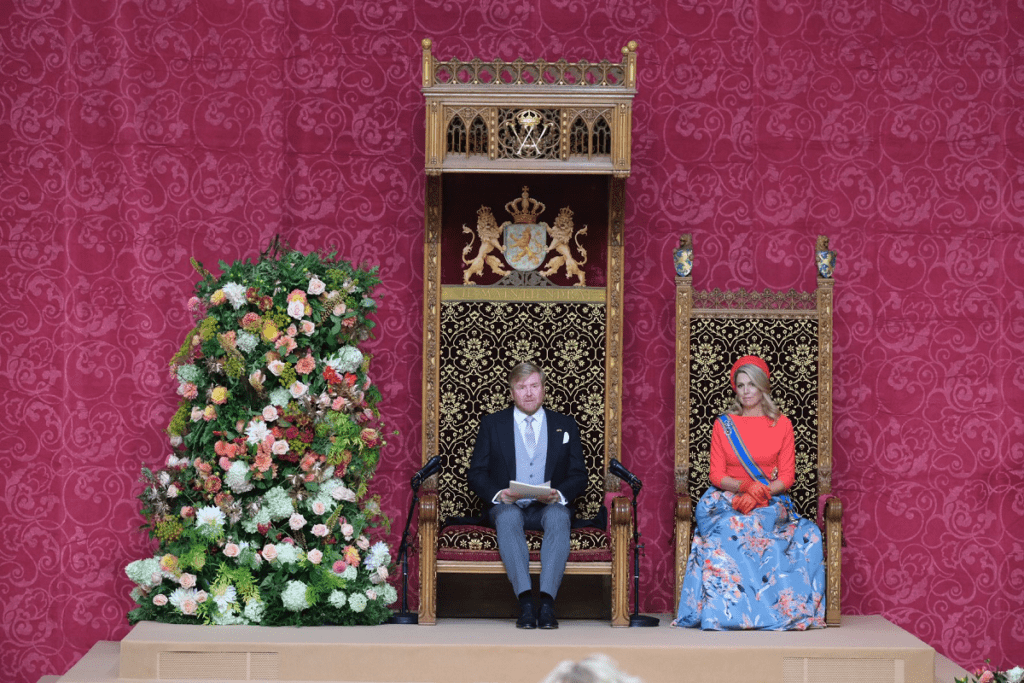Utrecht, September 2022
On 20 September 2022, it is Prinsjesdag again and the yearly speech of the king (‘Troonrede’) will be pronounced. On the one hand, it looks back at what has happened in the Netherlands and the world around us in the past period, and on the other, it announces the plans and legislation for the coming year. Each department is given a place in the Troonrede, which gives some idea of what the plans and legislation might be about.
We have looked at the past and tried to deduce what we can expect and what that means for us. This is relevant because the Netherlands is currently, in a sense, in transition from a country with a relatively high yield from natural gas and its own traditional production, to a country that will increasingly have to generate its wealth differently due to an ageing population and environmental awareness, among other things.
We look back from 32 years ago: the year 1990, when Germany was reunited, the Gulf War broke out and the first phase of the European Economic and Monetary Union began. The Netherlands had an important international role in all kinds of developments. 1990 was also the beginning of a decade of growth: average annual GDP growth from 1991 to 2000 would be 3.3%, well above the annual growth rate in the period 2001-2010 (1.4%). It was also the year that the Troonrede addressed necessary changes in agriculture and horticulture: ‘That the European Community’s agricultural spending is set to grow strongly again is worrying. Developments in agricultural markets therefore make continued adjustment inevitable; partly to improve international relations in agricultural trade. Adaptation is also necessary to achieve an agriculture and horticulture that is practised with respect for the environment’.

The Throne Speeches from 1990 onwards are all editorially structured by theme by parlement.com and we make grateful use of this. The number of topics per year varies widely: minimum 6 and maximum 18 topics. There is hardly any correlation between the number of topics and that year’s GDP growth, which is revealed a few months later. The positive correlation does increase with GDP growth two years later, and even more so with three years later. In year four after pronouncement, the correlation between the number of themes and growth decreases again. The implicit suggestion is that the more versatile the Troonrede is in its topics, the better it is for GDP growth after about three years. This also implies that historically, the greatest impact of the Troonrede on GDP is not reached until 3 years after it is delivered.
The number of topics the King addressed in 2019 (14) and 2020 (18) was relatively high, suggesting that we will still see a nice GDP increase this year, but after that it will slow down. Where last year saw a frugal or relatively narrow Troonrede, we can therefore expect relatively low growth next year and the year after as well if we follow this indicator.
Interestingly, the years of high growth also coincided with Environment as a separate theme. This theme also correlated with growth, especially during 1990-2004. After that, the theme disappeared and was somewhat swapped for the climate theme, from 2015 onwards. In the intervening years, annual GDP growth was only 1.2 per cent. This seems to suggest that lack of attention to environment and climate correlates with little growth.

It is also notable that the topics of gas extraction (twice) and housing construction (seven times) have featured little in the past 32 years. It can be expected that these will certainly come up now, given current events. Unique themes were Sustainability (in 2007) and Less Rules (in 2011). Growth in the respective periods of the 3 years thereafter was between -0.1% and +0.1%. Unique themes often mean few long-term policies, and based on the correlations, that is bad for growth.
It is also notable that the issue of healthcare has featured in almost all Troonredes. Since 1990, people have been wrestling with the tension between good and accessible care on the one hand and the affordability of care on the other. An ageing population, technological developments and increases in the number of chronic conditions lead to a rising demand for healthcare, while there are limits to the people and resources available. Despite attempts to balance this, such as minor or major reforms (think of the decentralisation of healthcare around 2015) and an appeal to the own responsibility of citizens and institutions, the same issues keep cropping up. During the corona pandemic, the focus was – logically – temporarily shifted, but in 2021, the issue was raised again: Healthcare must be organised differently in the future to remain accessible, affordable and of high quality. In the 2022 Troonrede, this theme is likely to return again.
All this leads to the observation that striving for completeness in the Troonrede enhances the chances of growth. One could argue that a cabinet that plans completely, and perhaps even diversely, achieves successful growth over time. A Troonrede with few topics may oversimplify the complexity of governing. A simple message thus brings little good. Given all the issues that are currently going on in the Netherlands and the world around us, you can therefore expect that this year we will again get a comprehensive Troonrede with a multitude of themes. Energy, Environment, Gas extraction, and Agriculture and Housing may all return. And in 3 years at the latest, we will hopefully reap the results of that.
Interested in a personal meeting?
Find contact details for Beaufort’s team on the team page!